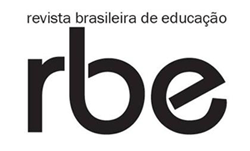Resumo em Português:
O artigo que se organiza em torno de hipóteses sugeridas pelo conteúdo de documentos consultados, busca explicar a precária situação educacional dos negros brasileiros, a partir dos dois eixos que a tem estruturado - exclusão e abandono. Examinando as políticas de oferta de educação nos séculos XIX e XX deixa evidente a constante omissão do Estado em relação à população negra, embora a ameaça de extinção do escravismo e as bruscas mudanças na organização do trabalho no país, tenham forçado a incluir, nas discussões, a problemática da educação das crianças escravizadas, libertas ou livres. Salienta, o artigo, a importância das organizações negras, ao longo do século XX, na luta pelo direito à educação, seja combatendo o analfabetismo, incentivando os negros a se educarem, seja criando aulas, cursos de ensino regular e de outras modalidades de ensino, apesar das dificuldades para mantê-los. Assim sendo, são destacadas idéias, ideais, iniciativas da imprensa negra dos anos 20 ao final dos anos 30, de diferentes entidades no final dos anos 40, no decorrer dos 50, destacadamente nos anos 80, em seqüência à criação do Movimento Negro Unificado.
Resumo em Inglês:
This article aims to explain the educational meager situation of Black Brazilians, from the two axis that have been structuring such situation - exclusion and neglect. The text is organized following assumptions suggested by the documents that support it. A careful look at the educational policies published, during the XIXth and XXth centuries, shows the continuing omission, by the government, of measures in order to benefit Black people. It is pointed out that the imminent abolition of slavery and the changes in the organization of the economy in the XIXth century, compelled to discuss education for slave children, children released from slavery, Black children born free. Finally, it is accentuated the importance of Black activism, mentioned as Black Movement, in the fighting of Black people for education. So Black organizations take the place of the governement in the offering of conditions for education, in spite of great difficulties. Ideas, ideals, initiatives are stood out those from the Black press in the years 20 to 30 of the XXth century, and those from different collective groups, in the end of years 40 and during the 50, notably in the years 80, in the succession of the creation of the Unified Black Movement.
